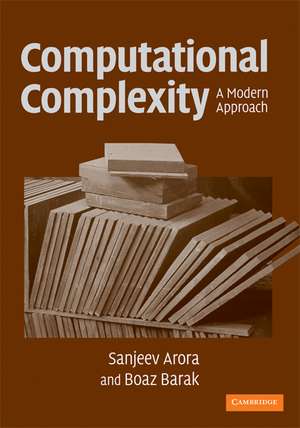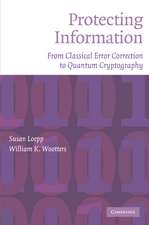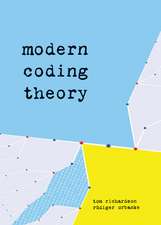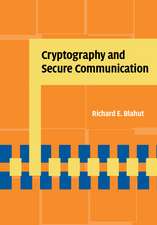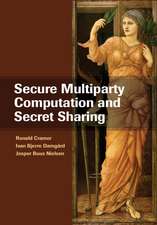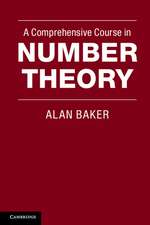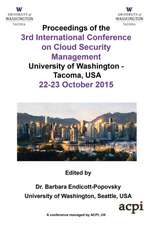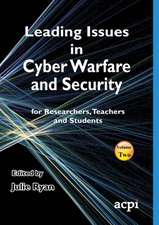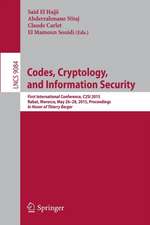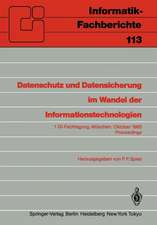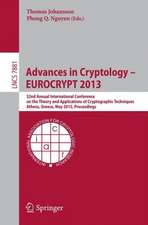Computational Complexity: A Modern Approach
Autor Sanjeev Arora, Boaz Baraken Limba Engleză Hardback – 19 apr 2009
Preț: 398.06 lei
Preț vechi: 432.66 lei
-8% Nou
Puncte Express: 597
Preț estimativ în valută:
76.18€ • 82.72$ • 63.99£
76.18€ • 82.72$ • 63.99£
Carte tipărită la comandă
Livrare economică 22 aprilie-06 mai
Livrare express 15-21 martie pentru 80.70 lei
Preluare comenzi: 021 569.72.76
Specificații
ISBN-13: 9780521424264
ISBN-10: 0521424267
Pagini: 594
Ilustrații: 73 b/w illus. 6 tables 307 exercises
Dimensiuni: 185 x 259 x 38 mm
Greutate: 1.4 kg
Editura: Cambridge University Press
Colecția Cambridge University Press
Locul publicării:New York, United States
ISBN-10: 0521424267
Pagini: 594
Ilustrații: 73 b/w illus. 6 tables 307 exercises
Dimensiuni: 185 x 259 x 38 mm
Greutate: 1.4 kg
Editura: Cambridge University Press
Colecția Cambridge University Press
Locul publicării:New York, United States
Cuprins
Part I. Basic Complexity Classes: 1. The computational model - and why it doesn't matter; 2. NP and NP completeness; 3. Diagonalization; 4. Space complexity; 5. The polynomial hierarchy and alternations; 6. Boolean circuits; 7. Randomized computation; 8. Interactive proofs; 9. Cryptography; 10. Quantum computation; 11. PCP theorem and hardness of approximation: an introduction; Part II. Lower Bounds for Concrete Computational Models: 12. Decision trees; 13. Communication complexity; 14. Circuit lower bounds; 15. Proof complexity; 16. Algebraic computation models; Part III. Advanced Topics: 17. Complexity of counting; 18. Average case complexity: Levin's theory; 19. Hardness amplification and error correcting codes; 20. Derandomization; 21. Pseudorandom constructions: expanders and extractors; 22. Proofs of PCP theorems and the Fourier transform technique; 23. Why are circuit lower bounds so difficult?; Appendix A: mathematical background.
Recenzii
'This book by two leading theoretical computer scientists provides a comprehensive, insightful and mathematically precise overview of computational complexity theory, ranging from early foundational work to emerging areas such as quantum computation and hardness of approximation. It will serve the needs of a wide audience, ranging from experienced researchers to graduate students and ambitious undergraduates seeking an introduction to the mathematical foundations of computer science. I will keep it at my side as a useful reference for my own teaching and research.' Richard M. Karp, University of California at Berkeley
'This text is a major achievement that brings together all of the important developments in complexity theory. Student and researchers alike will find it to be an immensely useful resource.' Michael Sipser, author of Introduction to the Theory of Computation
'Computational complexity theory is at the core of theoretical computer science research. This book contains essentially all of the (many) exciting developments of the last two decades, with high level intuition and detailed technical proofs. It is a must for everyone interested in this field.' Avi Wigderson, Professor, Institute for Advanced Study, Princeton
'This text is a major achievement that brings together all of the important developments in complexity theory. Student and researchers alike will find it to be an immensely useful resource.' Michael Sipser, author of Introduction to the Theory of Computation
'Computational complexity theory is at the core of theoretical computer science research. This book contains essentially all of the (many) exciting developments of the last two decades, with high level intuition and detailed technical proofs. It is a must for everyone interested in this field.' Avi Wigderson, Professor, Institute for Advanced Study, Princeton
Notă biografică
Descriere
New and classical results in computational complexity, including interactive proofs, PCP, derandomization, and quantum computation. Ideal for graduate students.
